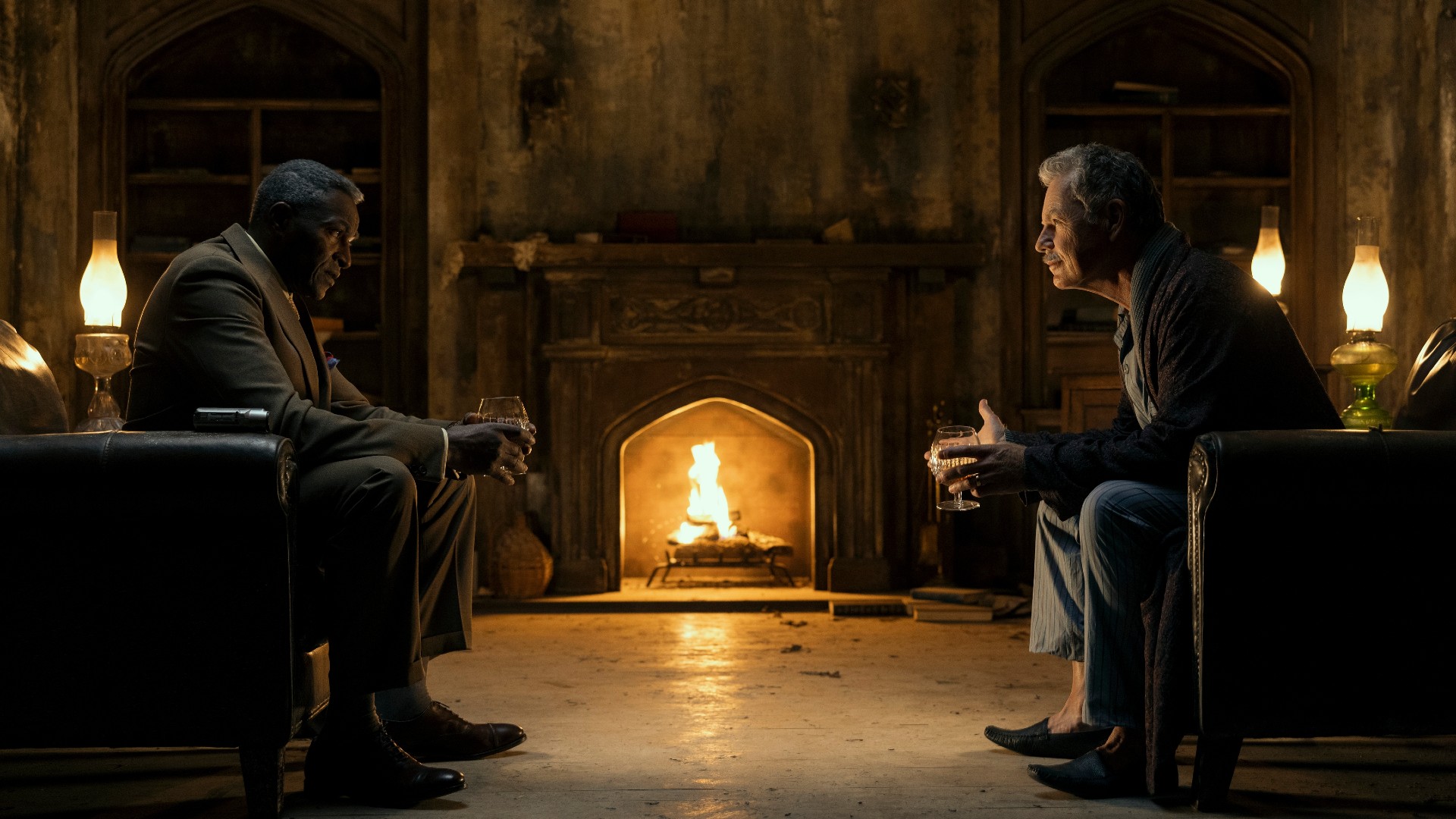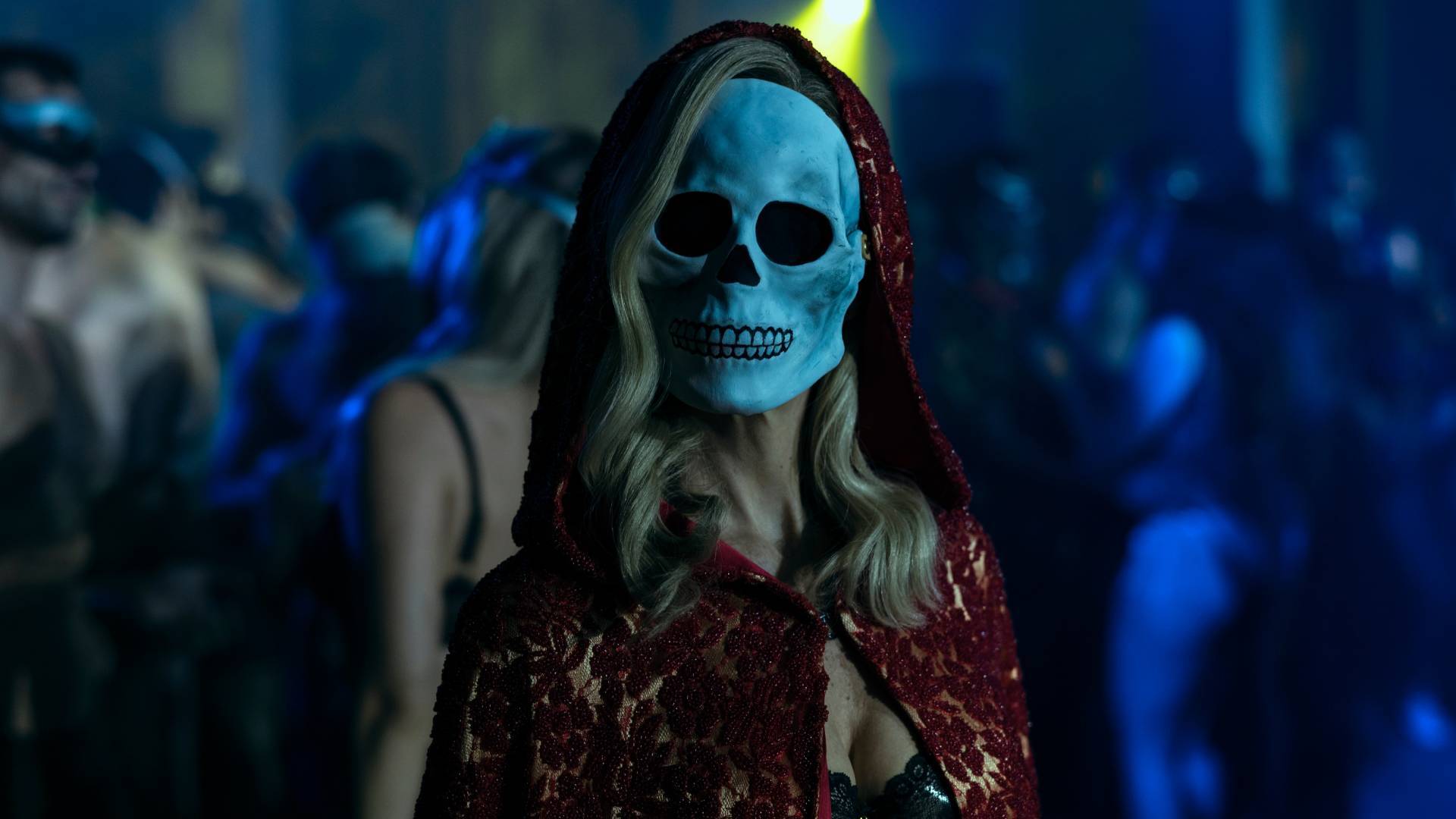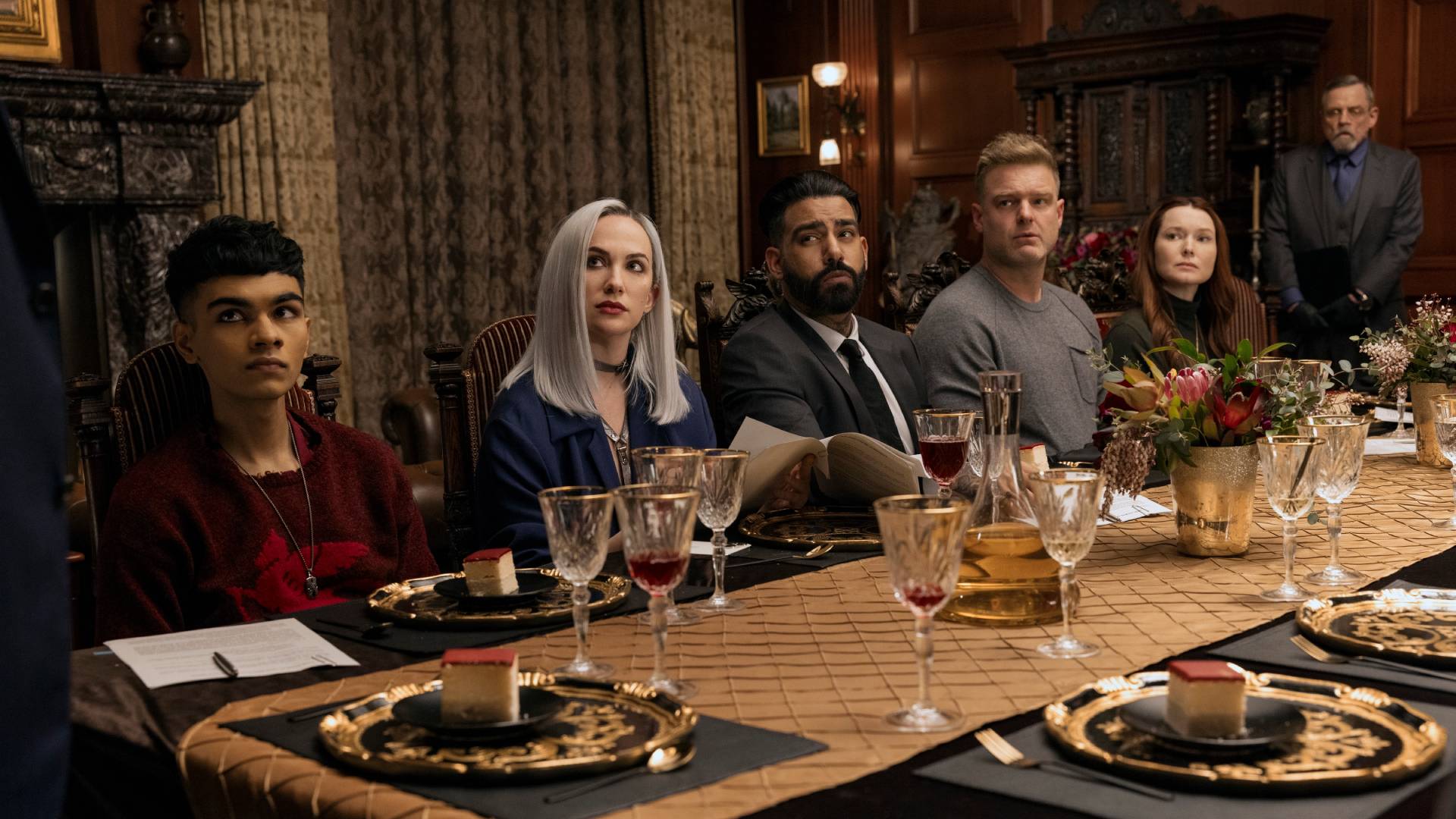GamesRadar+ Verdict
Bloody, campy, and a far cry from Hill House and Bly Manor, The Fall of the House of Usher sees Mike Flanagan mix Edgar Allan Poe, American Horror Story and Succession – and the result, while not perfect, is fun
Why you can trust GamesRadar+
Where Haunting of Hill House centered on grief; Bly Manor on love, and Midnight Mass was an exploration of faith, The Fall of the House of Usher's central theme is greed. Assuredly Mike Flanagan's most twisted miniseries yet, the show is framed by obscenely wealthy businessman Roderick Usher (Bruce Greenwood) recounting his life – and confessing his sins – to old pal and investigator Auguste Dupin (Carl Lumbly); an act inspired by the sudden deaths of his six children. For the most part, it's a fun, bloodsoaked watch that sees the longtime Netflix collaborator ditch his signature melancholic scares for something much campier and tongue-in-cheek.
Starring several of Flanagan's frequent collaborators including Samantha Sloyan, Henry Thomas, and real-life wife Kate Siegel, The Fall of the House of Usher draws inspiration from a bunch of Edgar Allan Poe works, including his short story of the same name, The Murders in the Rue Morgue, and poem The Raven. Essentially, and bear with us here, there are three timelines: Roderick's chat with Augie; the two weeks prior, in which all of his children perished; and one fateful night Roderick and his twin sister Madeline shared on New Year's Eve 1979. Across the eight episodes, which kick off with his eldest kids' joint funeral, the macabre, unusual ways in which the Ushers died are revealed one by one – as is Roderick's part in their demises, in a "twist" so obvious it seems unfit to describe it so.
The result is complicated. On the one hand, centering on a kid per episode is the perfect binge-watch model: you want to find out how each one met their makers? Well, you'll just have to watch until the end – and there's no denying it hooks you. But if you're keen to tune in due to a specific actor, you might end up feeling short-changed. It also gets formulaic and repetitive fast, almost forcing you to become more concerned with the wicked gore than the zippy dialogue, lavish production design, and character dynamics. If you're not a sicko wanting to fast-forward to the last few moments of every chapter when you start the show, you will be once you've finished it.

You see, it's easy to revel in the Ushers' suffering, given that they're the worst. For the first time in the Flanaverse, the humans are the monsters, not the ghosts or ghoulies. "Oh, that is awful. Is 35 really what we're going with?" Sloyan’s acid-tongued Tamerlane quips about a statement announcing her sister's recent passing. The older ones, those who have been with Roderick since birth, often refer to the others as "the bastards"; they turn their nose up at satin, spit venom at their pop's new young wife any chance they get, and most of them treat their romantic partners terribly.
So used to having everything, they abuse drugs, indulge in bizarre intimacy kinks and darkly obsess over their work, just to feel alive – and each of the actors' unique, hammy performances match up to their roles perfectly. Most of the siblings are queer, too, which bolsters the show's meme-friendly, American Horror Story vibe (and seems primed to make everyone on Twitter shout 'Mother!' the second the show premieres).
Unlike Haunting of Hill House's Crain clan, these people haven't grown up together, so their personalities are entirely different; Siegel's crisis manager Camille is as icy as her platinum hair, Rahul Kohli's coked-up game developer Leo is bombastic and emotional, whereas Thomas's oldest Usher heir Frederick is a ball of neurotic and pathetic energy, which makes all of their family interactions an unpredictable treat. If only there were more of them…
The kids are, of course, just pawns in Roderick's tale. A Flanaverse newbie (though he did work with Flanagan on Gerald's Game and Doctor Sleep), Greenwood – who stepped in mid-shoot after a misconduct investigation led to the firing of Frank Langella – is nothing short of miraculous in the role, effortlessly straddling the line between ruthless pharma tycoon and repentant, acquiesced father as Roderick becomes increasingly rattled with every dropping offspring. He's a joint lead, though: Flanagan has often centered Carla Gugino in his titles, be it the ill-fated Olivia in Hill House or the narrator in Bly Manor, and their latest collaboration doesn't buck the trend – as her calm and confident Verna acts as Roderick's foil. She's beguiling here, adding intrigue and warmth to a mysterious character that could have easily been one-note.

During Verna's interactions with the Usher twins in the past, however, it's Willa Fitzgerald's Madeline that stands out – not Zach Gilford's Roderick – as she offers up a more human, trueful version of Mary McDonnell's monotone take on the merciless matriarch. Madeline and her brother had a tough beginning, which we won't dive into here, and Fitzgerald's hints at vulnerability suggest Madeline forged her cutthroat exterior deliberately to avoid being hurt again. McDonnell, on the flip side, feels a bit like a po-faced pantomime villain.
After plunging his fist into our chests and metaphorically ripping out our hearts with his previous works, though, some might find The Fall of the House of Usher lacking in substance. It's a thrill ride, that's for sure, but it's not particularly moving or geared to make a lasting impression in the way Hill House or Midnight Mass were. It doesn't open up deep conversations about evangelism and existential matters, or make you cling on to your loved ones a little tighter. Power and money can make people do bad things? Well, we know that, we've seen Succession.
But maybe that's the point, right? To leave us slightly hungry, wanting? "'Here' you said, 'Come with me, gorge yourselves.' You didn't feed them though, did you?" Roderick's scorned first wife says of their youngsters in a gut-punch scene in the season finale. "You starved them. You started filling them up with… What did you fill them up with, Roderick? What did you have to fill them with?" On the surface, the Ushers appeared to have it all, but their lives were empty – and their joint need for more proved to be their collective undoing. Perhaps Flanagan's intention is to have us feel that same sense of Usher insatiability for a short while? The theme is greed, after all.
The Fall of the House of Usher releases on October 12. For more, check out our list of the best Netflix shows to watch right now.
More info
| Genre | Horror |
I am an Entertainment Writer here at GamesRadar+, covering all things TV and film across our Total Film and SFX sections. Elsewhere, my words have been published by the likes of Digital Spy, SciFiNow, PinkNews, FANDOM, Radio Times, and Total Film magazine.




